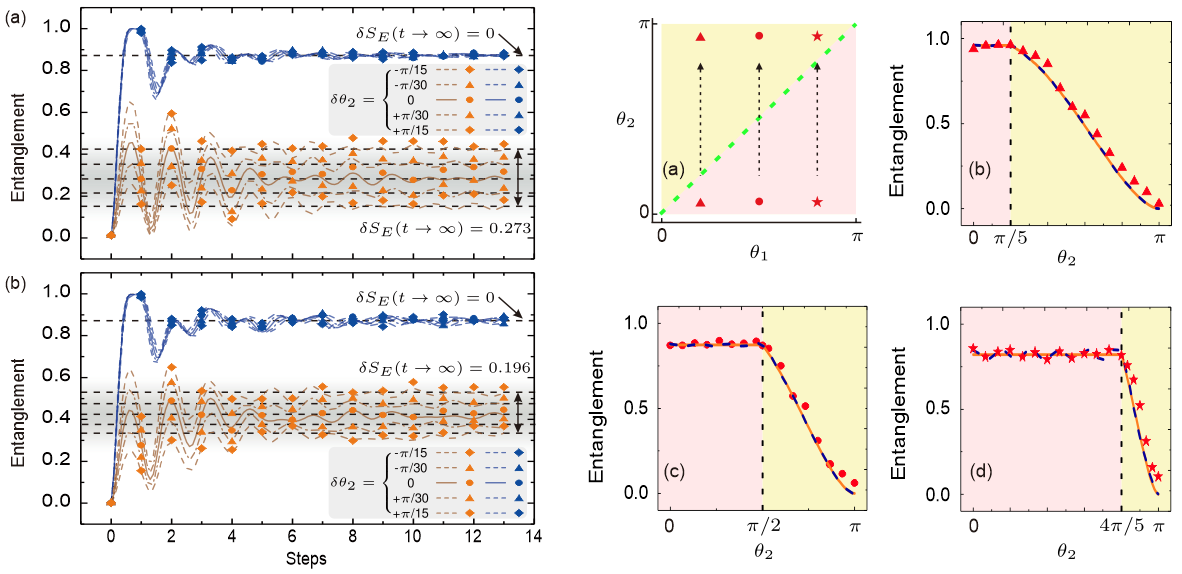Academician Guo Guangcan’s group has made a new advance in the research of quantum walks: Li Chuanfeng, Han Yongjian, Xu Xiaoye and their colleagues firstly proposed and experimentally demonstrated that the robustness of entanglement in quantum walks is dramatically different for the distinct topological phases, and can then be used to reveal the topological phases and their transitions. The research results were published on January 14th in Optica, a flagship journal of the Optical Society of America.
Quantum entanglement has been shown to play a key role in quantum information processing such as quantum metrology, quantum key distribution, and quantum computing. While establishing the relation between the topological properties of systems and the robustness of entanglement is a critical problem in quantum information, addressing it requires not only quantifying the entanglement existed in the systems, but also the complete classification of the topological phases. Quantum walks provide a powerful platform to explore this relation.
After the first direct measurement of bulk topological invariants [Phys. Rev. Lett. 120, 260501 (2018)] and the observation of the entanglement dynamics between the spin and the spatial degrees of freedom in quantum walks [Optica 5, 1136-1140 (2018)], Li Chuanfeng’s team directly verified the relation between the topology and the robustness of entanglement. First, research group theoretically predicted that the entanglement is invariant under the perturbations of a control parameter in the non-trivial topological phases while it is extremely sensitive in the trivial topological phases. Then by varying the control parameters of the system, they experimentally observed the distinct robustness of entanglement in the quantum walks with different topological phases, which can be used to detect the phase transition points. The experimental results take a step forward in establishing the universal relation between the many-body topological systems and the robustness of entanglement, which will certainly deepen our understanding of the many-body topological systems and further promote the development of quantum coding and quantum error correction.
Reviewers highly evaluated this work: In my view, this work is novel with high impact for both theoretical aspects and future development of quantum information processing.
The first author of the article is Wang Qinqin, a doctoral student of CAS key lab of quantum information. The work was funded by the Ministry of Science and Technology, the National Natural Science Foundation of China, the Chinese Academy of Sciences, the Anhui Province and the National Postdoctoral Program for Innovative Talents.

Experimental results for revealing the topological phases and their transitions. Image by Li Chuanfeng’s team.